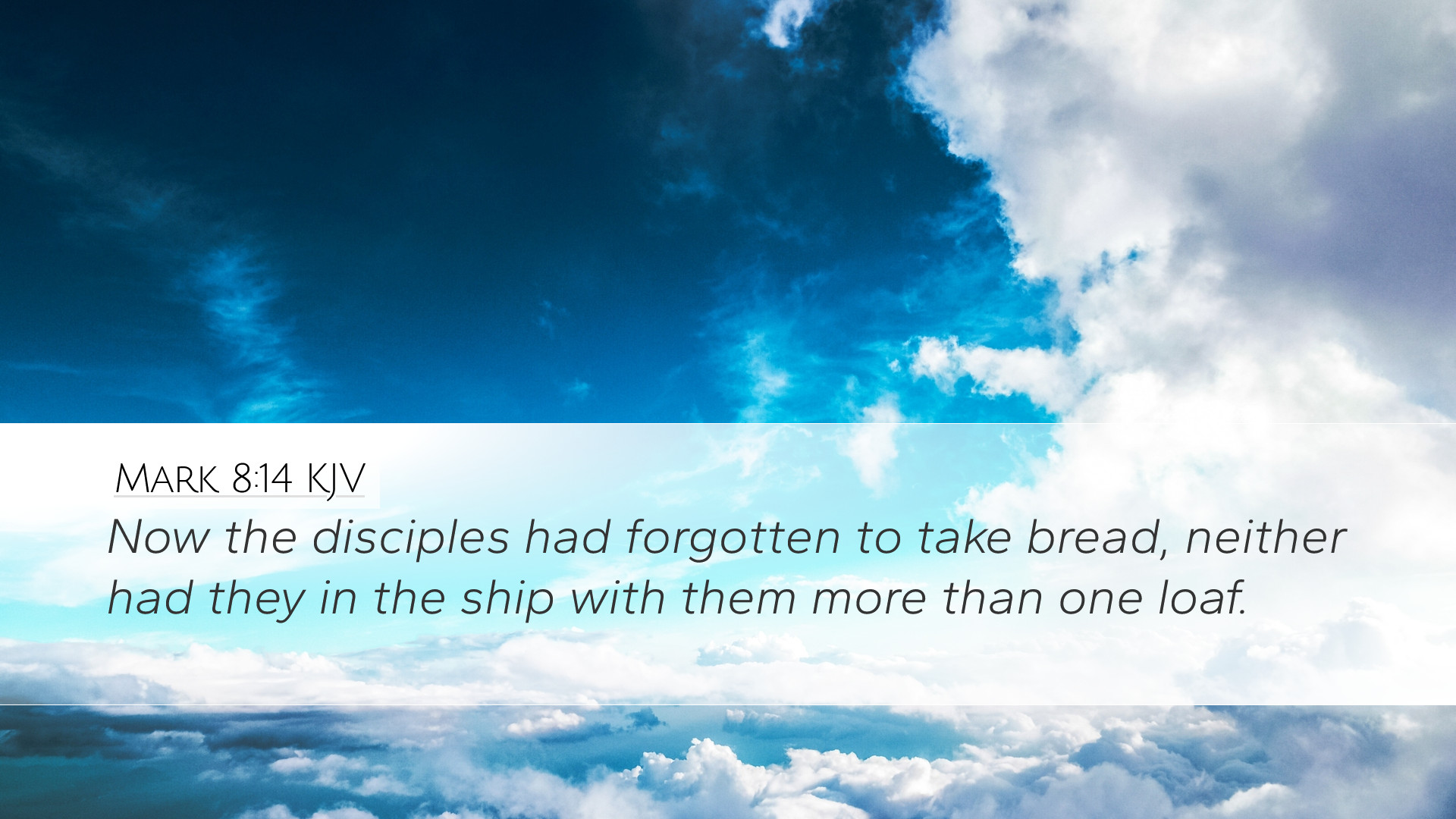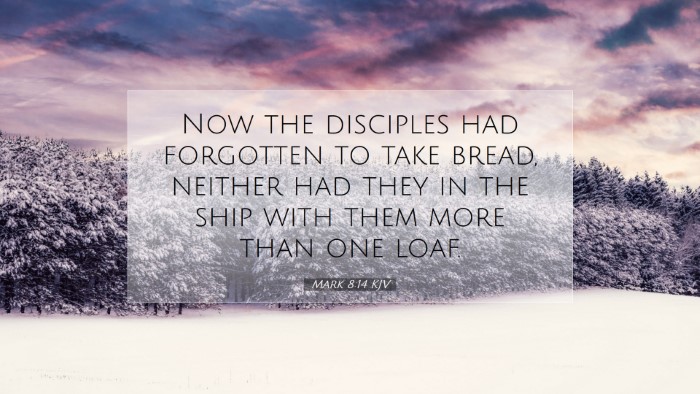Commentary on Mark 8:14
Verse Reference: Mark 8:14 - "Now the disciples had forgotten to take bread; and they did not have more than one loaf with them in the boat."
Introduction
This verse presents a scene that encapsulates both the physical and spiritual understandings that the disciples struggled with throughout the ministry of Jesus. In examining this passage, we look at various public domain commentaries that explore its implications for faith, misunderstanding, and the provision of God.
The Context
As we delve into Mark 8:14, it is essential to recognize the immediate context of Jesus’s ministry. Prior to this moment, Jesus had performed significant miracles, including feeding thousands with minimal resources, which often left the disciples amazed yet confused.
Matthew Henry’s Perspective
Matthew Henry emphasizes the importance of this passage concerning the disciples' lack of awareness and the symbolism of their physical needs. He notes:
- Spiritual Hunger: Henry draws attention to the disciples’ misunderstanding, indicating that although their physical needs were unmet, they were in the presence of He who provides abundantly. This emphasizes a greater spiritual truth, where reliance should be on Christ rather than on earthly provisions.
- Omission of Bread: The disciples’ failure to bring bread into the boat highlights their preoccupation with physical sustenance instead of spiritual preparedness. This moment serves as a reminder to the readers not to overlook the spiritual realities in their lives.
Albert Barnes’ Insights
Albert Barnes provides a detailed analysis, emphasizing the implications of the disciples’ worry regarding their lack of bread:
- Forgetting the Miracles: Barnes suggests that the disciples’ forgetfulness is notable given their recent experiences of Jesus’ miraculous provision. He questions how they could forget such powerful lessons of faith, likening it to modern believers who forget God’s past provisions in times of need.
- The One Loaf: The mention of having only one loaf illustrates their dire situation; however, it also serves as a metaphor for the sufficiency of Christ. His commentary points out that even a single loaf, when placed in the hands of Jesus, can be multiplied beyond measure.
Adam Clarke’s Commentary
Adam Clarke contributes significantly to the discussion on practical applications of this verse:
- Fear and Doubt: Clarke discusses the fear and doubt that often plague believers. The disciples’ concern for bread reflects a lack of trust in Jesus’ ability to meet their needs. He urges readers to view this as a call to faithfulness in reliance upon God’s provision.
- Instruction through Experience: Clarke posits that through this experience, Jesus seeks to teach the disciples (and by extension, all believers) about reliance on divine providence, even amidst scarcity. The lesson is that God’s grace abounds even when our resources are limited.
The Disciples’ Misunderstanding
The disciples' preoccupation with their immediate physical needs often leads to misunderstanding Jesus’ teachings. This verse serves as a pivotal moment for spiritual growth.
Spiritual Implications
Throughout this encounter, we observe several key spiritual implications:
- Awareness of God’s Provision: Believers are reminded to maintain a perspective that acknowledges God’s ability to provide, irrespective of circumstances.
- Learning through Experience: Similar to how the disciples learned, contemporary followers of Christ must seek to grow from their experiences and the lessons they convey.
- Faith’s Role in Scarcity: The use of a single loaf symbolizes God’s capacity to use what we perceive as insufficient for His purposes.
Conclusion
In summary, Mark 8:14 is a rich passage filled with profound truths about reliance on God amid spiritual and physical challenges. The contributions from Matthew Henry, Albert Barnes, and Adam Clarke collectively provide a framework that is beneficial to pastors, students, and scholars alike.
The upheld message remains steadfast: even when circumstances appear dire, one must remember that Jesus, the Bread of Life, is ample for every need. This passage invites introspection on the part of believers to trust more deeply in God’s providence and to lean on His comprehensive care.


